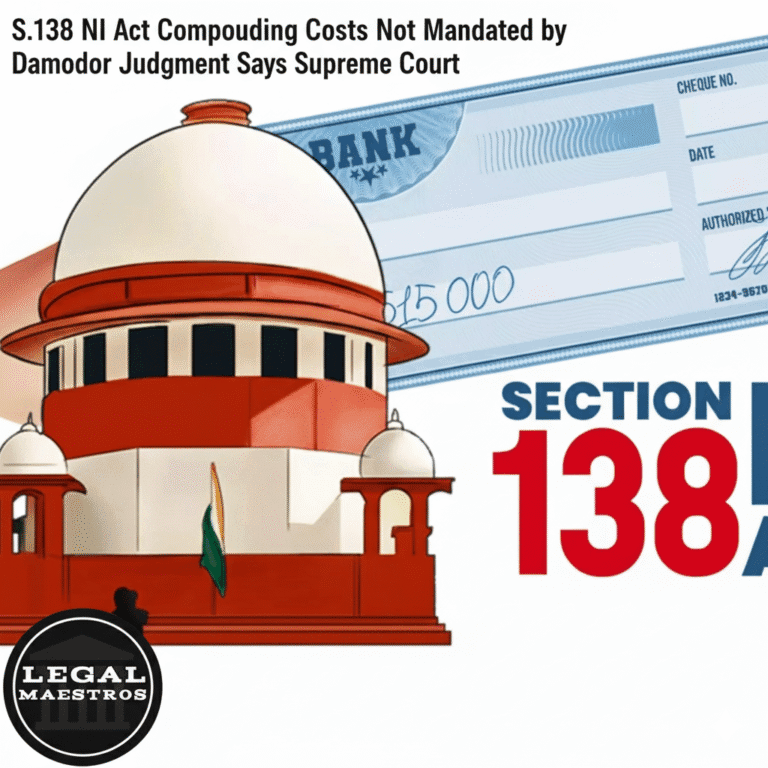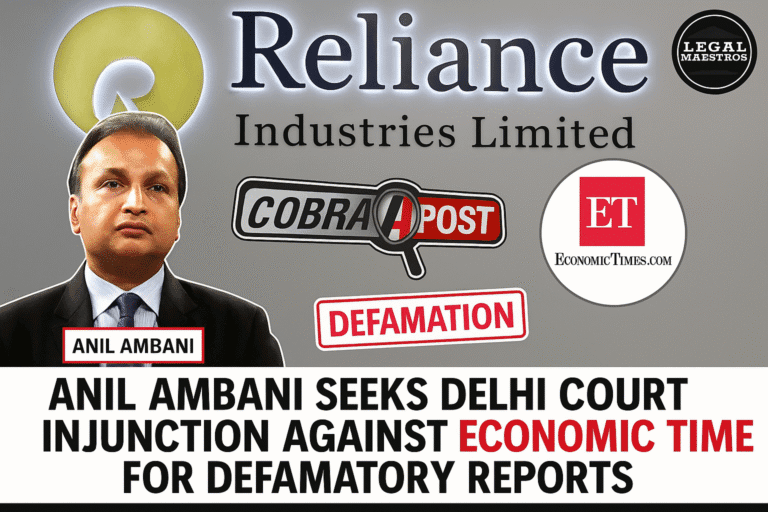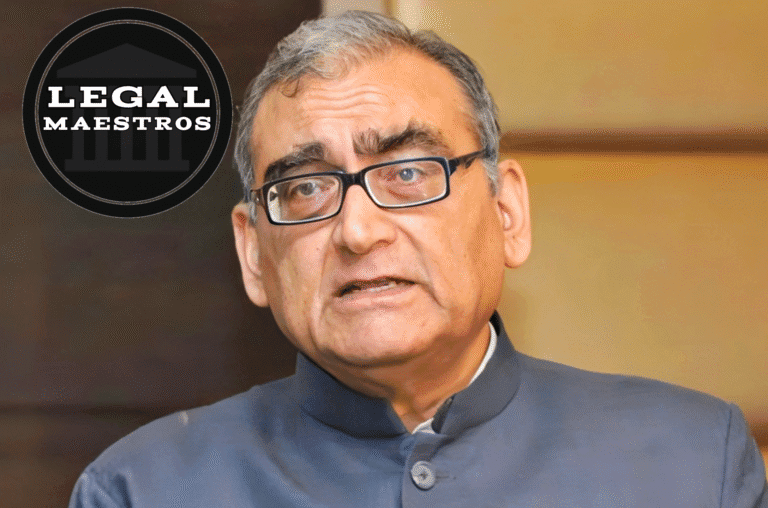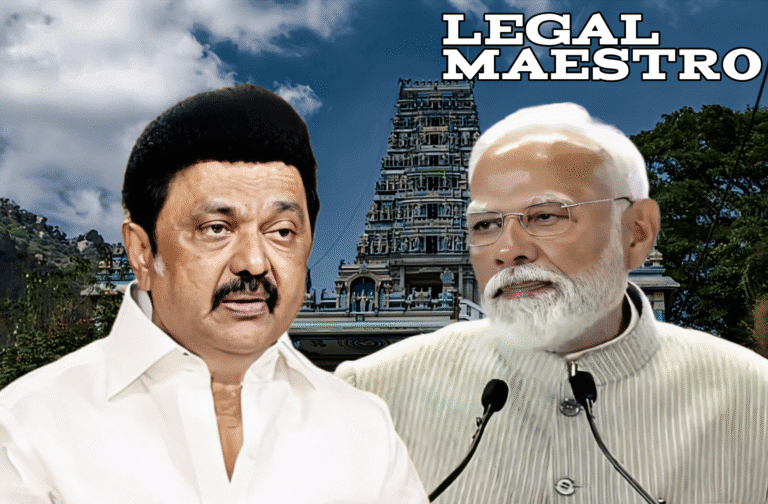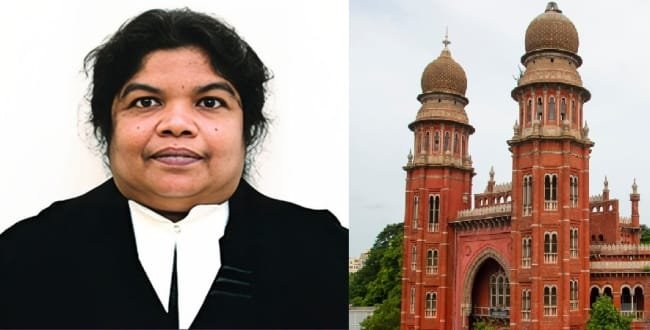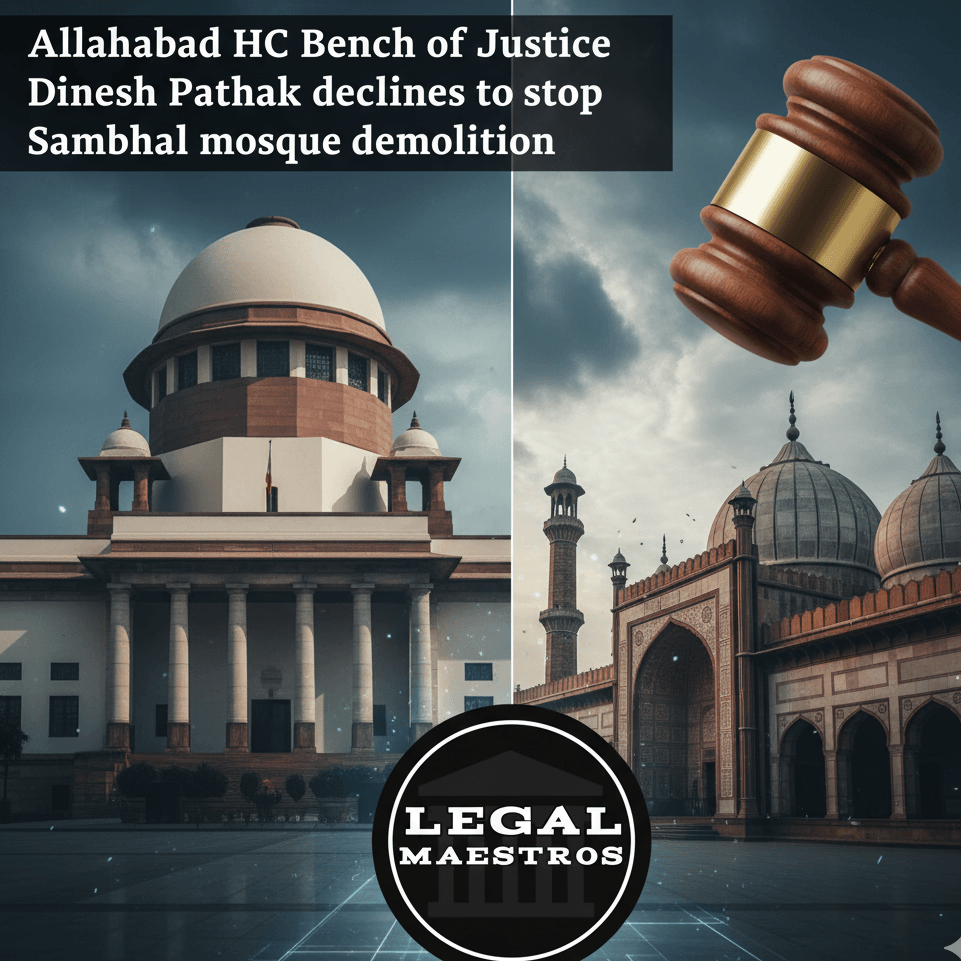
Allahabad HC Bench of Justice Dinesh Pathak declines to stop Sambhal mosque demolition
A Plea to Halt Demolition Reaches the High Court
The Allahabad High Court has refused to interfere in an issue of the proposed demolition of a mosque in the Sambhal district of Uttar Pradesh. The single judge bench led by Justice Dinesh Pathak declined to grant stay to the demolition order given by local administrative authorities. This was decided on considering a writ petition filed by the managing committee of the Masjid Shareef Gosulbara which objected to the structure being demolished.
The case highlighted a very sensitive and legally delicate question of the religious buildings erected on a land that is disputed by the state. The petitioners went to the High Court as the final option, with a view to a judicial redress, which would put to death the orders made by the Tehsildar of Sambhal. The fact that the court refused to halt the demolition leaves the local administration with the ability to legally move ahead to demolish the mosque.
The case is important in that it explores the essential overlap of legal property law, administrative law, and religious liberties. The central request of the petitioners was that they wanted the protection of a worshiping ground that they said was long established. Nevertheless, the ruling of the court was eventually determined by legal land documents and the due process followed by the government and overridden the emotional and religious feelings put forward.
For any queries or to publish an article or post or advertisement on our platform, do call at +91 6377460764 or email us at contact@legalmaestros.com.
The court was involved in the legal tussle between the mosque committee and the State of Uttar Pradesh where the court was required to determine whether the administrative order that eviction and demolition could take place was legally binding. The decision critically examined the facts submitted on both parties and came to the conclusion that the High Court had no reasons to exercise the extraordinary writ jurisdiction in the given case.
The Crux of the Conflict: Public Land vs. Religious Site
The whole conflict was dependent on whether or not the land where the mosque was built was in legal possession. The petitioners on behalf of the mosque claimed that, the property on which the building was constructed was part of a graveyard which they maintained was a registered Waqf land. A Waqf is a charitable bequest according to the Islamic law and its properties are usually disallowed to be sold or transferred and are to be used to serve a religious or charitable cause.
The mosque committee may have used the long life of the structure as a defense in their petition to prove that the structure was legitimate. They would have claimed that since it was a congregation site of local religious people, it was the right of protection by any administrative interference. The case made by petitioners was based on the fact that the land belonged to them and the demolition order was an unlawful trespass on their right to worship.
For any queries or to publish an article or post or advertisement on our platform, do call at +91 6377460764 or email us at contact@legalmaestros.com.
But the State of Uttar Pradesh gave a very clear contrast to the court. The counsel of the government provided official records of the revenues and it was established that the land in question as Gata No. 509 was registered as a pond or a pokhar. Legally, the land that is allocated to a common utility such as a pond falls under government property and cannot be legally violated or utilized to carry out any other construction, whether personal or religious.
This was the key argument of the legal case based on this evidence of the official land records. It transformed the understanding of the movement in a religious problem to an unquestionable notice of so-called violation of social land. The response of the government was that the mosque was an unlawful construction set up on a land that should be used by the whole community and thus, the administration was morally obligated to evict the intrusion.
The Court’s Reasoning: Procedure and Proof
In his order, Justice Dinesh Pathak concentrated on two issues in detail which included whether the petitioners were able to prove their ownership in the lands and whether the administration of the state had adhered to due process of law. The court observed that, the petitioners did not present any documentary evidence to support the allegation, that the land was registered Waqf property or that they had a legal title to the land.
For any queries or to publish an article or post or advertisement on our platform, do call at +91 6377460764 or email us at contact@legalmaestros.com.
The court took a keen interest in looking at the actions of the Tehsildar of Sambhal. It was established that the administration acted under the agreement of the Uttar Pradesh Revenue Code, 2006. An eviction proceeding was filed and a proper notice of eviction was issued to the mosque committee. They were also allowed to give their case, produce evidence and be heard before the final order of eviction and demolition was issued.
The bench headed by Justice Pathak considered that the due process of law was applied and therefore the administrative order could not be declared as arbitrary and as it was illegal. The court pointed out that the fact that the petitioners did not present any document to refute the official land records which had indicated clearly that the land was a pond undermined their case significantly. The petitioners had to prove that they had a legal right to the land which they failed.
Moreover, the court indicated that there was a different and more suitable legal recourse that the petitioners could have used. They might have appealed to the order of the Tehsildar by a statutory appeal to a superior administrative authority namely to the Sub-Divisional Officer. The presence of such alternative remedy was one of the main reasons why the High Court did not take action since writ petitions are normally only accepted in cases where other legal procedures have been tried and failed, or where they simply do not exist.
For any queries or to publish an article or post or advertisement on our platform, do call at +91 6377460764 or email us at contact@legalmaestros.com.
A Firm Stand on Encroachment of Public Land
This ruling of the Allahabad High Court sends a loud and clear message on infringing the public land, without considering the type of structure erected over it. The decision takes the sanctity of official land records and the rule of law to override the long-term use or religious feeling claim made when it is not supported in the legal documentation.
The court successfully partitioned the legal issue of the legal title to the land and the religious character of the structure. The ruling was not an opine of the right of worship but a literal understanding of the property law.



